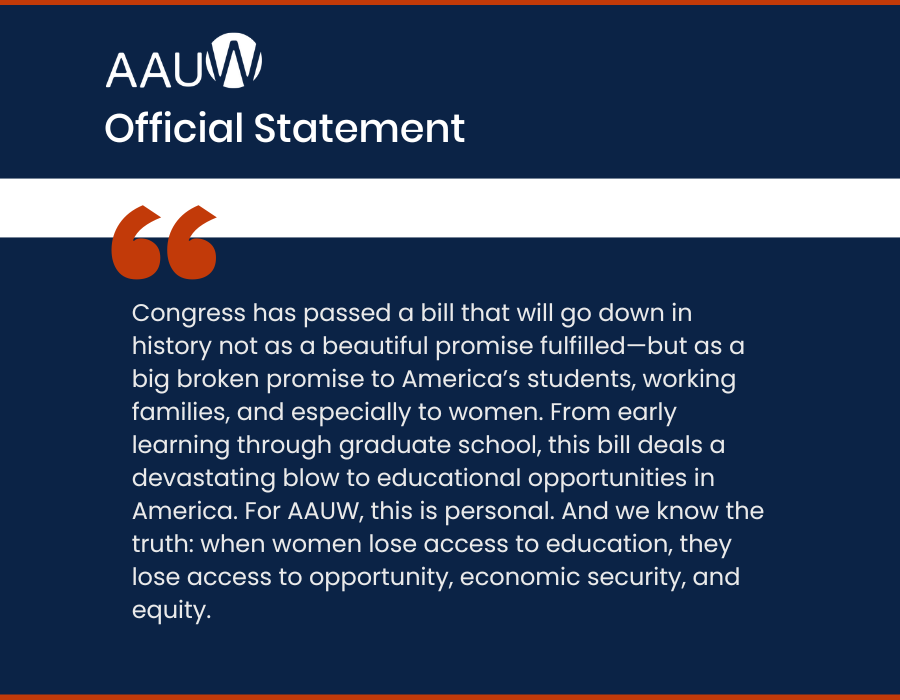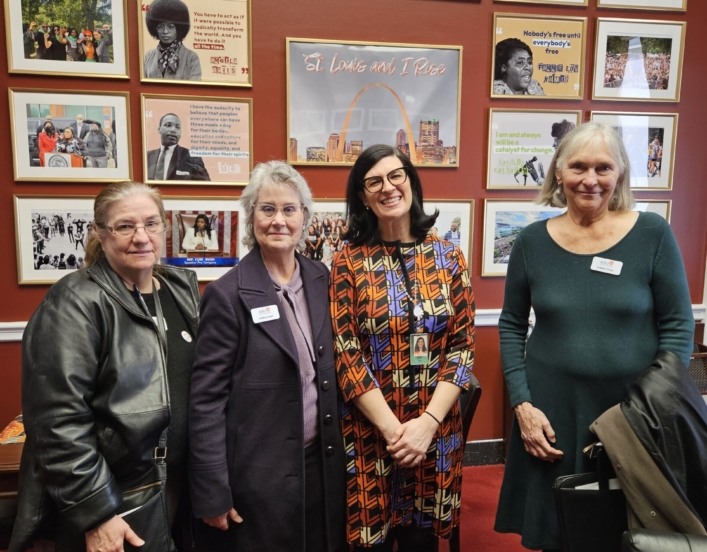AAUW : Empowering Women Since 1881
Advancing gender equity through
education and advocacy.

AAUW 2025 Strategic Plan
AAUW’s 2025 Strategic Plan outlines how we’ll advance equity for women and girls by expanding access to higher education, advocating for inclusive policies, and strengthening our nationwide member network.

AAUW Condemns Trump Administration’s Ongoing Attacks on Higher Education
AAUW stands in opposition to Congress’s latest bill, which strips away educational opportunities and undermines civil rights protections for students — especially women, low-income families, and communities of color. This harmful legislation slashes financial aid, attacks reproductive health, and jeopardizes decades of progress toward educational equity and economic security.

AAUW’s Annual Report: A Year of Impact
Discover how AAUW is advancing equity for women and girls nationwide. Our latest Annual Report highlights key achievements, financials, and the impact of our programs over Fiscal Year 2024. Be sure to check out AAUW’s stories of impact.
Grassroots Feminism in Higher Ed: Building Coalitions for Women’s Rights
Explore how higher education can fuel feminist activism and drive systemic change. In this powerful panel, experts discuss the evolving landscape of women’s rights under a new administration and share strategies for building coalitions rooted in research, solidarity, and leadership. Watch now to gain insight into the role of academia in advancing gender equity.
Take Action
Get involved in advancing gender equity. Whether you stay informed, contribute, or share our mission with others, your engagement helps support equity for women and girls.
Sign up for news & updates
Stay connected with AAUW and join our mission to advance gender equity. Sign up for our updates to receive the latest news, events, and opportunities to make an impact in the lives of women and girls.



